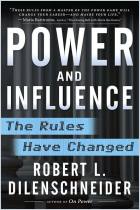
Power
Why Some People Have It – and Others Don't
Published by arrangement with HarperBusiness, an imprint of HarperCollins Publishers
ISBN: 9780061789083
Pages: 288
Recommendation
If power corrupts, why does everyone lust after it and worship those who have it? Power – used wisely – can keep you healthy, make you rich and let you achieve great things for humanity. Jeffrey Pfeffer, a professor of organizational behavior, explains why seeking power is in your best interest and shows you how to attain power and keep it. He debunks the objections you usually hear from the powerless and the powerful alike. He lays out a step-by-step guide on how to start building your power, what you’ll need and, most important, what it’ll cost you to achieve. getAbstract recommends Pfeffer’s somewhat-less-than-Machiavellian, but still useful, book to anyone who ever has felt powerless in work or in life and wants to power up.
Summary
About the Author
Jeffrey Pfeffer is a professor of organizational behavior at Stanford University.

















Comment on this summary